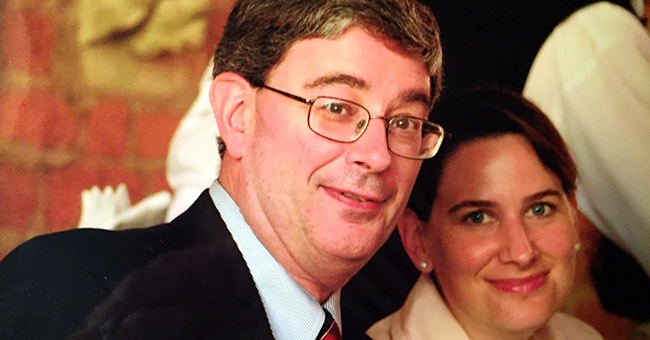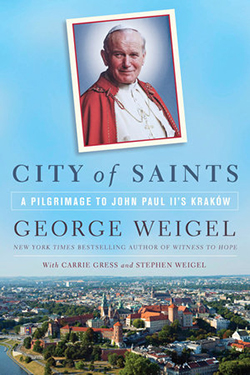Papal Biographer George Weigel on Krakow

George Weigel is the author of the biography of Pope John Paul II, Witness to Hope. Few can claim to know the most famous son of Poland better than he. What most people don’t know is that Weigel has spent most of July in Krakow for more than twenty years with the Tertio Millennio Seminar on the Free Society. I asked him about the changes he has seen in the city over the last two decades and what Pope Saint John Paul II might say to the World Youth Day pilgrims that will descend upon the city.
Gress: You have spent almost a month in Krakow every July for two decades, and you've made many other trips to Poland throughout the years. How have you seen the country and the people change during that time?

Polish Catholic practice is still remarkably high by European standards, although there are signs of slippage. I can't say I'm much impressed by most of the post-Cold War Polish media, which tends to mimic the worst of western journalism, but Poland today is a stable democracy and that's quite an accomplishment.
The challenge, in my view, is to build the robust, evangelically vibrant Catholicism in Poland for which John Paul II hoped. I don't think Poland is going to replicate the experience of Ireland or Quebec: total Catholic meltdown. But over the next two generations it might become a kind of Italy—culturally Catholic, but with lax practice—unless the Church grasps that Catholicism by the old ethnic transmission belt isn't going to work any more.
Gress: Do you think, as some have speculated, that it is fair to call Poland the last remnant of Christendom?
Weigel: I don't think "Christendom" has existed for a very long time, and I don't think that much of Poland thinks of itself in those terms. What I hope for Poland as a political community in the next twenty years is that it demonstrates the possibility of a mature democracy being built on an intact Catholic culture: a 21st-century polity in which the dignity of the human person, the common good, and solidarity are at the center of public life.
Gress: You know many Poles, and knew better than most the world's most famous Pole. What characteristics should pilgrims expect to find in their Polish hosts?
Weigel: Immense warmth and vitality, a deep devotion to Rome and the papacy, and a tradition of hospitality that is quite remarkable.
Gress: What do you think Pope Saint John Paul II would want pilgrims to take away from their time in Poland, particularly in this city of Mercy in the year of Divine Mercy?
Weigel: John Paul II's challenge to pilgrims at WYD-2016 would, I expect, be the same as the challenge he laid down at every World Youth Day he attended -- Never, ever settle for less than the spiritual and moral grandeur that the grace of God makes possible in your life. You will fail; we all do. But that's no reason to lower the bar of expectation. Get up, dust yourself all, seek reconciliation and forgiveness, experience the mercy of God, and try again. But never ever settle for anything less than being the saint you were baptized to be.











